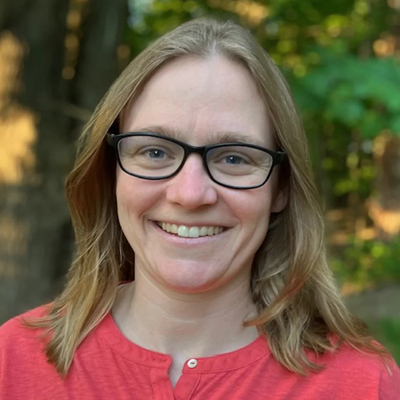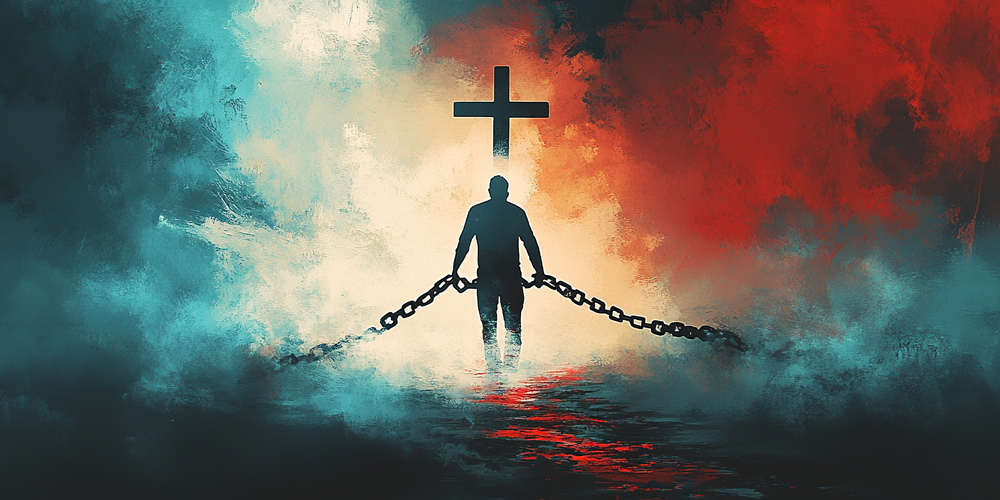By Rachael Botting
Editor’s note: Christian camping has been in the news recently — especially with the tragic deaths of 27 campers and camp employees in July at Camp Mystic, a nondenominational camp for girls, because of rapid flooding from the neighboring Guadalupe River in Texas. We continue to pray for the victims’ families along with the surviving members of the Camp Mystic community. Before that tragedy, the new book “Church Camp” sparked coverage in publications ranging from Christianity Today to Publishers Weekly. Camping expert Rachael Botting, a member of a Free Methodist congregation, offers her own perspective on that book — and the importance of camps in faith formation — in the article below. The Light + Life team is grateful to be part of a movement with an ongoing legacy of Christian camping that has helped thousands of children, teens and adults encounter Christ and go deeper in their faith.
Campfires. Rock walls. New friends. Canoeing. Hiking. Counselors. If you were one of the millions of children who attend summer camp each year, these words would likely transport you back to the time you spent seeking adventure alongside close friends in some of the most beautiful places on earth. If you attended a Christian summer camp, the words “mountain top, testimony, and campfire worship” might take you back, too. Summer camps, Christian or not, are evocative experiences that lodge deeply in our cognitive and experiential memory banks – if you’ve been to camp, chances are, you remember it well.
Earlier this year, author and speaker Cara Meredith released her book “Church Camp: Bad Skits, Cry Night, and How White Evangelicalism Betrayed a Generation.” Her book offers a critique of both evangelicalism as a whole and evangelical Christian camps more specifically. The locus of her critique is the tendency of Christian camps to emotionally manipulate participants to make decisions for Christ through a carefully planned program progression that has one goal in mind: conversion.
As a practitioner and scholar in the Christian camp field, I swallowed hard multiple times as I read it, not because I disagree, but because I know she’s right. Far too many Christian summer camps measure success by counting responses to an altar call on the final night of camp with little to no regard for how decisions are made or what happens after campers leave. Making the decision to follow Christ is an important step in a person’s faith journey, but, in agreement with the author, it’s not what Christian summer camps are for.
Temporary Community + Faith Formation
Though the philosophical roots of modern Christian summer camps are often traced back to the Great Awakening and camp revivals of the eighteenth century, there are strong historical and theological roots that reach much farther into Christian history. Over 3,000 years ago, the nation of Israel stood before Moses and Aaron and received a long list of rules, regulations, and guidelines that would shape their life in the promised land. Outlined in detail in Leviticus and Deuteronomy, these instructions for living would identify them as God’s people and shape their life together.
Embedded in a litany of dos and don’ts, cubits and ephahs, permissions and punishments is a list of holy festivals, or sacred assemblies, that God commands they celebrate as a community. Each of these festivals includes a set apart date and time for Israel to stop what they were doing and intentionally engage a period of rest, reflection, and remembrance. In the Festival of the Tabernacles, it also involved a change of location — for seven days they lived in temporary shelters and held a celebration in remembrance of their wilderness wanderings. This type of experience is defined today as an experience of temporary community, and it shows up throughout Scripture as a tool that God uses to transform and equip His people.
_
“The basic idea is that we are wired to engage a balance of both dwelling (permanent, normal) and seeking (retreat, withdrawal, explorational) experiences. ”
_
Broadly speaking, temporary community is any experience in which a person or group of people retreats from the spaces and routines that define normal life and enters a set apart space to engage new routines toward the goal of rest and renewal. As is evident in the feasts and festivals, God uses these experiences to remind his people of their true identity and to illicit trust in His provision through the cultivation of new habits, values, and ways of living that are intended to be carried with participants into the future.
This basic idea can be seen in a variety of Christian practices throughout history. As early as the third century, Christian monastics like Anthony of Egypt began engaging the discipline of retreat in pursuit of moral and spiritual formation. While some monastic traditions may have encouraged complete detachment from the world for the remainder of life, recent scholars have understood the ultimate goal of monastic separation as “the reintegration of the self [into society with] powerful new social roles as adjudicators, intermediaries, and advocates” (Bernard McGinn). Later, the same ideas were evident in the development of the Jesuit practice of retreat, which is still practiced today by members of many Catholic and Protestant denominations alike (see Ruth Haley Barton’s “Invitation to Retreat” for a helpful discussion on retreat as a modern spiritual practice).
In their book “Transforming Spirituality,” F. LeRon Shults and Steven J. Sandage situate the habit of retreat through the lens of two interlocking cycles that define human spiritual development: cycles of spiritual dwelling and cycles of spiritual seeking. The basic idea is that we are wired to engage a balance of both dwelling (permanent, normal) and seeking (retreat, withdrawal, explorational) experiences. Both cycles provide unique opportunities to encounter and be transformed by God, and both are essential to long-term spiritual formation.
While most discussions of the monastic tradition and spiritual retreats primarily focus on adult spirituality, several authors have suggested that these types of experiences are equally important for youth and adolescents. Delia Nüesch-Olver, for example, discusses the importance of momentous experiences alongside routine spiritual practices as a method for cultivating faith, and Andrew Brubacher Kaethler has suggested that “an important step in the pedagogical process is disembodying young people from their accustomed perspectives by creating experiences of disequilibrium through which teenagers encounter the other and are confronted with the event of truth.” This is why summer camp matters.
_
“Christian summer camps should be primarily places of formation.”
_
Although for most of the 20th century little was available beyond anecdote to explain what happens at summer camp and how it contributes to faith, the last 20 years have provided a growing body of research suggesting that Christian summer camps offer significant contributions to faith formation in terms of both cognitive beliefs (doctrines, scriptural convictions, etc.) and lived faith practices (participants in Christian summer camps have shown measurable increases in frequency of spiritual practices such as Bible reading, daily prayer, service, church attendance etc.) (Sorenson, 2014; 2018; Botting, 2024).
Furthermore, as a temporary community experience that offers the opportunity to retreat from the permanent space and engage a period of spiritual exploration, Christian summer camps offer adolescents the opportunity to explore and commit to the Christian faith apart from their families and weekly church community. This important transition to what John Westerhoff calls “owned faith” is an essential component of lasting faith that moves beyond the “affiliative faith” that often characterizes the pre-teen and teen years.
So, if Christian summer camps aren’t primarily about evangelism, what are they? They are temporary communities that offer both seekers of faith and sages of faith the opportunity to break away from their normal rhythms and engage formative experiences that equip them for a life of faithfulness.
Don’t get me wrong. I praise God for every person who has made a decision to pursue Jesus Christ at a Christian camp. Having worked at a camp for over a decade myself, I can tell you that it does happen. It is not always emotionally manipulative, but Christian summer camps should not be focused on conversion as their primary goal. Christian summer camps should be primarily places of formation — not of conversion.
What does this mean for how we design camp experiences as camp leaders, and how we engage Christian summer camp experiences as parents and church leaders? The Rhythms of Faith project, generously funded by the Lilly Endowment Inc. and jointly run by Wheaton College (Illinois) and Sacred Playgrounds (Wisconsin), has taken a deep dive into this question in an attempt to more effectively situate the Christian summer camp experience within the landscape of faith formation and intentionally connect it with the family faith formation efforts of the permanent space.
Relying on insights and best practices from camps across the country, the project has found that the most robust models of Christian summer camps are truly embedded in the ecosystem of faith formation. They are intentionally connected with parents and church leaders (in addition, of course, to campers) and they seek to resource campers, parents, and church leaders at three phases of the camp experience: before, during and after. When Christian summer camps are embedded into the yearly rhythms of faith formation, they become a spiritual discipline in and of themselves – a discipline of retreat rather than an experience of conversion.
So, returning to my question, what does all this mean for how we engage Christian summer camps?
Camp Leaders
One of the ways that you can situate Christian summer camps within the landscape of faith formation is by providing experiential transitions at the beginning and end of camp that are focused on framing (on the front end) and reflection (on the back end). Viewed through the lens of temporary community, camp should not be framed as “the best week of your life,” a phrase that is experientially misleading and a recipe for ensuring the post-camp blues. Instead, it should be framed as an intentional time to reset, to dwell in authentic community, and be formed not by a program, but by Jesus.
As the week comes to a close, give campers and staff time to reflect on what they’ve learned, the skills they’ve developed, and the new habits they have initiated. Remind campers and parents that they came away to camp not to stay away forever, but to be refreshed and equipped for life at home.
Parents
As your kids go off to camp, take some time to prepare both yourself and your camper for an experience of seeking. After camp, talk to your camper about the new things they learned and the ways they want to grow. Encourage them to ask questions, take time to listen to God, and reflect on their own faith journey as a whole.
When campers come home and the dirty laundry has finished its third wash, keep in mind that if the camp has done its job, your camper will be different than they were when they left. Find ways to encourage them to continue practicing any new habits they’ve developed and invite them to share things they want to start doing that they may not have done before.
_
“Help your youth find camps that focus more on formation than on conversion, and encourage them to utilize the time away to go deeper with Jesus.”
Church Leaders
You may have mixed feelings on camp, and that’s OK. Many church leaders struggle with feeling like camp steals their youth away for long periods of time, or wrestle with how to help youth return from the “mountaintop.” Or maybe, like Cara Meredith, you wrestle with the emotionally charged, “repeat evangelism” that members of your youth group experience at camp.
If possible, help your youth find camps that focus more on formation than on conversion, and encourage them to utilize the time away to go deeper with Jesus. When they return, consider setting aside time to meet with any young people who have gone to camp and join them in reflecting on what happened, and what it might mean going forward.
Exploring, Connecting, Seeing
Christian camps are not perfect, and one of the things I appreciate most about the book “Church Camp” is the way in which it gives voice to the negative experiences that many people have at camp. Unfortunately, many Christian camps have misunderstood their role in Christian education and traded the formative opportunities of temporary community for emotionally charged evangelistic presentations, but that’s not true of all of them. There are plenty of Christian summer camps in the U.S. and abroad that have long pursued faith formation as an end goal, and these camps provide helpful models for us as camp leaders, parents, staff members, and church leaders.
The reality is that despite camps’ imperfections, something happens to people — both individually and communally — when they engage theologically significant temporary community experiences. For Israel, celebrating the festivals was a tool for teaching and a tool for remembrance. For youth today, attending Christian summer camps that are embedded in the life of the church — and intentionally connected with parents and families — offers an age-appropriate opportunity to explore faith, connect with God, and begin to see themselves as part of the body of Christ.
+
Works Cited:
Barton, R.H. (2018). Invitation to Retreat: The Gift and Necessity of Time Away with God. IVP Books.
Botting, R., Lawson, K., Carr, J. (2024). “Beyond the Camp High: The Contribution of Christian Summer Camps to the Development of Owned Personal Faith.” Journal of Christian Education.
Brubacher Kaethler, Andrew. (2016). “Getting All Turned Around: Truth, Disruption, and Reorientation in High School Theology Programs” in How Youth Ministry Can Change Theological Education – If We Let It, ed. Kenda Creasy Dean & Christy Lang Hearlson Eerdmans. 139-153.
McGinn, B. (2006). “Withdrawal and Return: Reflections on Monastic Retreat From the World.” Spiritus.
Nüesch-Olver, D. (2005). “Don’t Make Jesus Cry: A Qualitative Analysis of Spiritual Autobiographies of Older Teenagers.” Journal of Youth Ministry.
Shults, L.F. and Sandage, S.J. (2006). Transforming Spirituality: Integrating Theology and Psychology, Baker Academic. pp 32-33
Sorenson, J. (2018). “The Fundamental Characteristics and Unique Outcomes of Christian Summer Camp Experiences.” Journal of Youth Development.
Sorenson, J. (2014). “The Summer Camp Experience and Faith Formation of Emerging Adults.” Journal of Youth Ministry.

Rachael Botting, Ph.D, is a disciple of Jesus, a mom of boys, and a practitioner-scholar in Christian education and outdoor ministry. She has worked with Wheaton College (Illinois) since 2014, where she is currently the assistant director of the Rhythms of Faith Project. Her doctoral studies at Biola University focused on the unique and transferable faith outcomes of summer camp, but she enjoys reading, studying, and writing on a variety of topics related to faith formation, philosophy of ministry, and the role of experience in Christian education. She lives in Palmyra, New York, with her husband and three young boys. She is a member of Cross Creek Church in the Genesis Conference.










